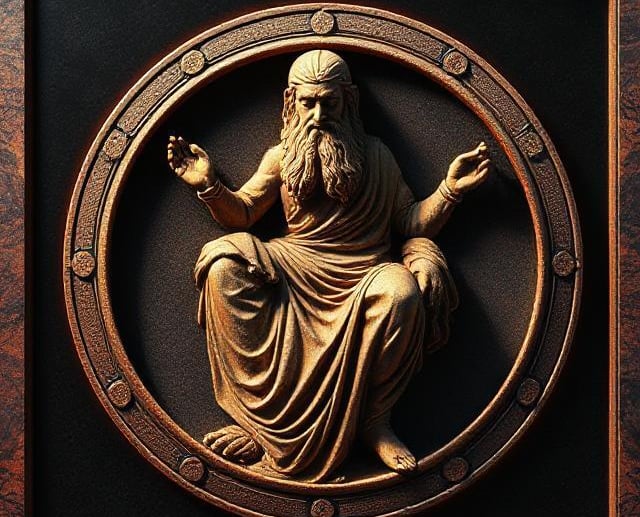UPSC Optional PSIR Comment: "The State is Individual Writ Large." (Plato) (2005)
🧠 Can a state reflect the structure of your mind? Plato thought so. In The Republic, he famously declared that “The State is the individual writ large”, drawing a powerful parallel between the human soul and political order. In this blog, we decode this idea using simple yet rich analysis—ideal for UPSC Mains, PSIR Optionals, and anyone curious about how virtue, governance, and justice intertwine. Bonus: Critical takes from Rawls, Popper, and modern thinkers included!
PSIR
7/29/20252 min read


🏛️ Plato’s Organic Theory of the State: A Mind-Map for Politics
Plato believed that the state mirrors the human soul—a harmonious society is simply the external reflection of an internally balanced individual.
This idea forms the backbone of his statement:
“The State is the Individual Writ Large.”
🧠 Tripartite Division of Soul & State – Plato’s Parallel Structure
1. Reason (Logos):
In the soul: Seeks truth and governs wisely
In the state: Represented by Philosopher-Kings
Function: Wisdom and Rational Rule
2. Spirit (Thumos):
In the soul: Source of willpower, bravery, and honor
In the state: Represented by Auxiliaries (Soldiers)
Function: Courage and Law Enforcement
3. Appetite (Epithumia):
In the soul: Desires for food, wealth, pleasure
In the state: Represented by Producers (Farmers, Artisans, Merchants)
Function: Desire Satisfaction and Economic Activity
➡️ Justice, in this setup, is when each part performs its own role without interfering in others—both in the soul and in society.
⚙️ What It Means: Political Harmony as Psychological Harmony
This leads to Plato’s Principle of Functional Specialization:
A just state = Philosophers rule, soldiers protect, producers produce.
A just individual = Reason rules over passion and desire.
Plato’s ideal political order flows from the belief that internal balance (virtue) enables external justice. Hence, philosopher-kings, being internally harmonized, are fit to rule.
📚 Philosophical Implications: State ≠ Just a Collection of Individuals
Plato challenges later thinkers like Hobbes and Locke, who saw the state as a social contract among self-interested individuals.
Instead, Plato sees the state as a living organism, not a machine. It has:
Purpose
Unity
Natural hierarchy
This makes political obligation a rational, natural duty—not a choice based on consent.
⚠️ Why Plato Distrusted Democracy
Plato argued that:
A soul ruled by appetites becomes disordered.
Similarly, a state ruled by masses (desires) becomes chaotic.
Thus, democracy leads to tyranny—both in individuals and states.
🛑 Plato rejected egalitarian democracy in favor of epistocracy—rule by the wise.
🧭 Modern Relevance: Is Plato Still with Us?
🔁 Who echoed Plato?
Rawls: His well-ordered society has echoes of Platonic unity—but with fairness and rights.
MacIntyre (Communitarian): Emphasizes virtue as essential to a good society—just like Plato.
❗ Who disagreed?
Karl Popper: Called Plato’s analogy a blueprint for totalitarianism.
His "closed society" crushes freedom, diversity, and individuality.
Plato’s rigid order, he argues, becomes a cage rather than a cure.
💡 Contemporary Applications of Plato’s Analogy
Technocratic governance (rule by experts) mirrors the philosopher-king idea.
Political psychology shows how individual cognitive biases shape collective decisions—a modern echo of Plato’s psycho-political unity.
✅ Conclusion: Still Relevant, Still Debated
Plato’s analogy of the state and the soul remains a foundational insight in political thought.
✔️ While his hierarchical and anti-democratic leanings are rightly challenged today,
✔️ His core idea—that a healthy society needs virtuous individuals and wise institutions—continues to inspire modern debates.
🔄 Political institutions work best when they’re aligned with human psychology, not at war with it.